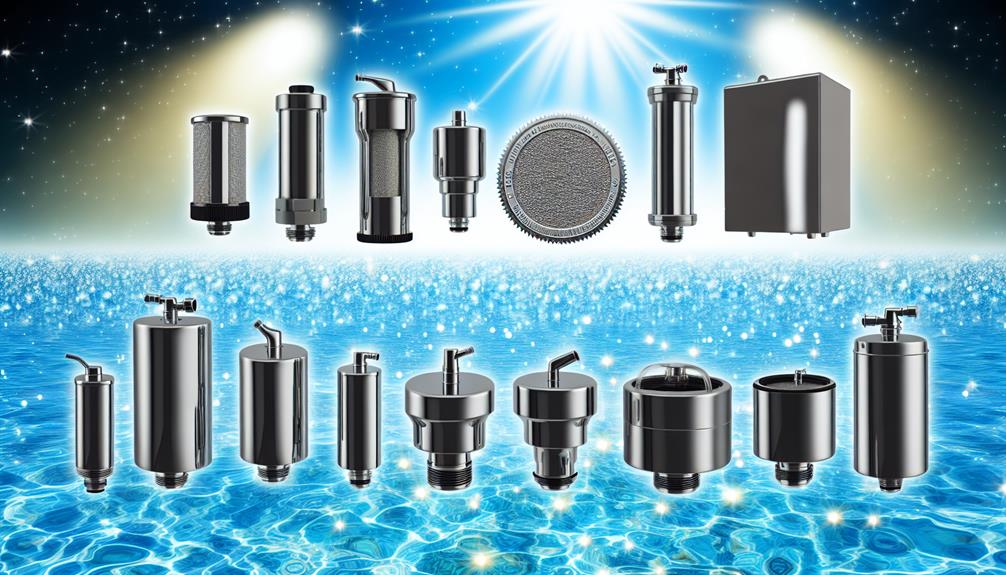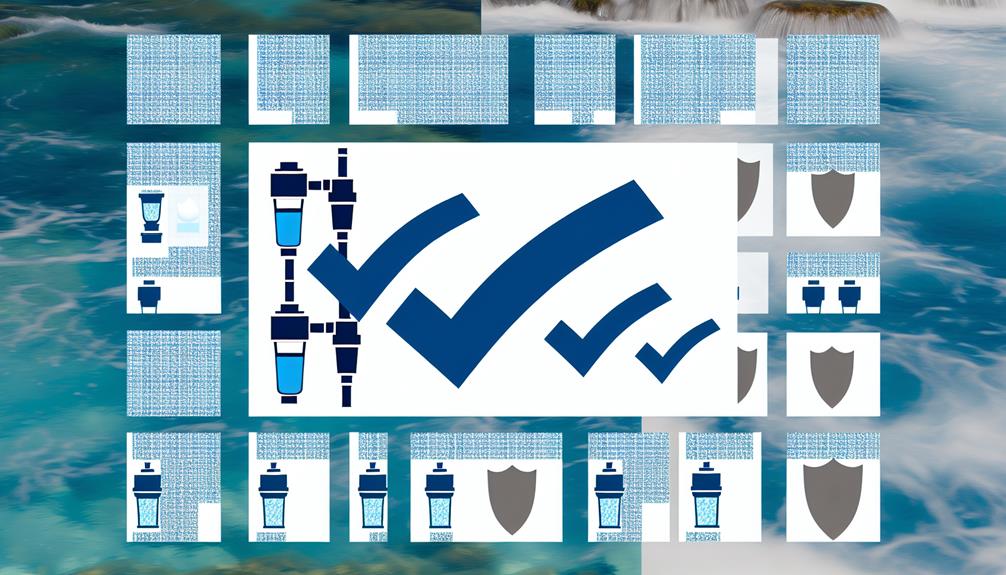Imagine you're at the helm of a beverage manufacturing plant, and a routine inspection reveals that your industrial water filters are not meeting the latest safety compliance standards. This is a scenario that can lead to costly production halts and even legal repercussions.
As you navigate the complex landscape of regulatory requirements, it's essential to understand that selecting the right water filtration system is not just about meeting the minimum standards; it's about safeguarding your product's integrity and your company's reputation.
Whether it's adhering to NSF/ANSI guidelines or complying with local and federal laws, your choice of filtration needs to address the unique challenges posed by your industrial application.
In the following sections, we'll explore the critical factors you must consider to ensure your water filtration system does not fall short of regulatory benchmarks, potentially exposing your operation to unforeseen risks.
Understanding Health and Safety Regulations
To ensure public health, it's essential to familiarize yourself with the NSF/ANSI standards that mandate the reduction of specific contaminants in water filtration systems. These encompass both aesthetic and health-related components, including chlorine, taste, and odor. By adhering to these standards, certified treatment systems for point-of-use or point-of-entry installation safeguard the quality of drinking water.
The FDA, IBWA, and NSF/ANSI set regulatory standards that are pivotal in ensuring the safety, quality, and compliance of bottled water production. NSF certification is particularly significant as it represents comprehensive testing, consistent adherence to rigorous standards, and ongoing compliance, thereby fostering consumer trust in water filter products.
Notably, NSF/ANSI certifications have different classifications, such as Standard 42 and 53, which indicate the level of testing for the reduction of non-health-related and health-related contaminants, respectively. Moreover, standards and testing protocols from entities like the EPA and ANSI are instrumental in validating performance claims of drinking water filters. These measures not only provide assurance of safety but also catalyze continuous improvement within the industry.
Your commitment to these technical specifications and regulatory guidelines ensures compliance and contributes to the overarching goal of protecting public health.
Importance of NSF/ANSI Standards
Building on the critical role of compliance in protecting public health, NSF/ANSI standards represent the benchmark for safety and quality in water filtration systems. When you select a water filter with NSF Certification, you're ensuring that the product has undergone a comprehensive testing regimen. These standards, which include NSF/ANSI 53 for Total PFAS, are aligned with the American National Standards for the utmost reliability.
NSF Standards are pivotal in upholding the Safe Drinking Water Act, as they rigorously evaluate contaminant reduction claims. A product that's certified to reduce specific contaminants will carry the NSF mark, a testament to its compliance and efficacy. This mark signifies that the water filter not only meets but often exceeds the required standards for drinking water.
The certification process is stringent, involving product evaluation, laboratory testing, and unannounced facility inspections to ensure continuous compliance. By adhering to these protocols, NSF Can Help you navigate the complex regulatory landscape, guaranteeing that your industrial water filters are synonymous with safety, performance, and public trust.
Don't compromise on quality; insist on NSF-certified products for peace of mind and regulatory approval.
Compliance With Local and Federal Laws
Navigating the maze of local and federal laws, you'll find strict compliance with FDA and IBWA standards is essential for maintaining the safety and integrity of bottled water, while adherence to NSF/ANSI standards ensures the effectiveness of industrial water filtration systems. As a stakeholder in the water treatment industry, you're tasked with upholding stringent regulations that safeguard public health and safety.
Ensure your industrial water filters are NSF-certified to effectively reduce harmful contaminants.
Regularly verify compliance with drinking water treatment standards set by local and federal laws.
Stay updated on changes to national standards, including those issued by the American National Standards Institute (ANSI).
Maintain detailed records that demonstrate adherence to the Environmental Protection Agency (EPA) water treatment standards.
Ascertain that all water filtration equipment meets the established minimum requirements for safety and performance.
Your commitment to these technical, regulatory-focused measures is non-negotiable. Neglecting to meet these national standards can lead to severe legal repercussions and compromise consumer trust.
Regular Maintenance and Certification
Ensuring your industrial water filters undergo regular maintenance and certification is crucial for adhering to safety and quality standards. The integrity of these systems directly impacts the standards for public health and safety. Regular maintenance and certification of your filter cartridges, moreover, serve as a testament to their performance and longevity.
When you select NSF International-certified water filters, you're choosing a product that has undergone a rigorous testing process. This process, detailed in the NSF database, includes comprehensive product evaluation, thorough laboratory testing, and consistent facility inspections. Certification demonstrates a commitment to safety and quality, aligning with the stringent requirements of the National Sanitation Foundation.
Annual audits of the manufacturing facilities that produce your water filters are an integral part of ongoing compliance. These audits ensure that your systems continue to meet the high bar set by NSF certification. By adhering to these practices, you also align with the evolving standards like the Cybersecurity Maturity Model, enhancing your operational resilience.
Documenting Compliance for Audits
To safeguard compliance with regulatory standards, you must meticulously document all NSF/ANSI certifications and adherence to relevant compliance benchmarks for your water filtration systems. This is vital not only for meeting the standards set by regulatory bodies but also for proving the efficacy of your treatment system in maintaining water quality and protecting against health effects associated with contaminated water supplies.
When preparing for audits, ensure you have:
- Records of NSF/ANSI certifications, verifying your filtration products meet Water Filter Standards.
- Detailed reports of tests and certifies processes, including all steps taken to remove specific contaminants.
- Documentation of compliance with FDA, IBWA, and EPA standards, ensuring safety and quality of bottled water.
- Third-party testing results and substantiated performance claims pertaining to your water filters.
- Proof of adherence to both regional and international water treatment unit standards, fostering global recognition and consumer trust.

